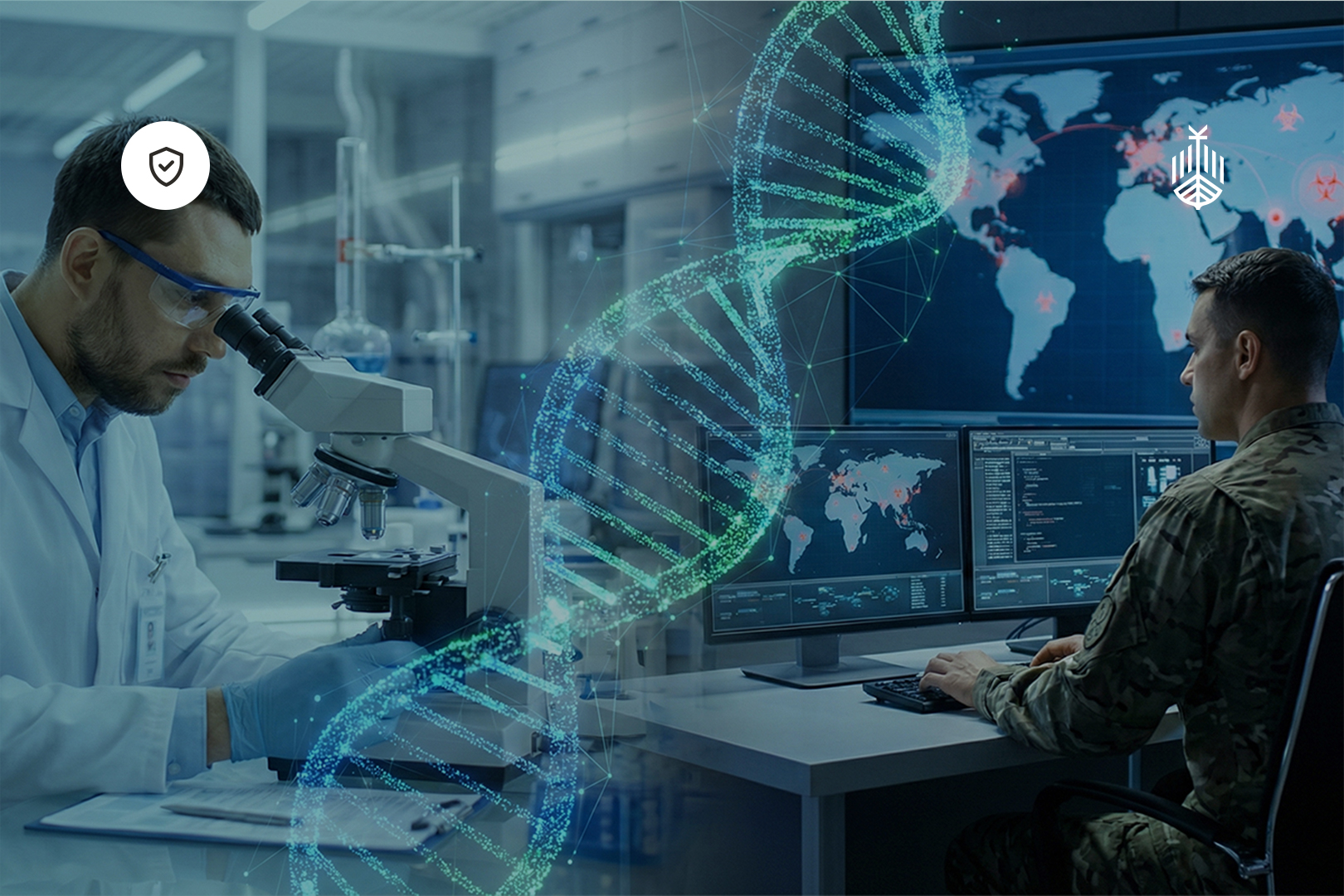Biotech is moving faster than our ability to secure it.
That was the premise behind the UK Defence Biosecurity Forum 2025.
Together with Ginkgo Bioworks and jHub Defence, Karve convened over 100 experts at King’s College London; scientists, military leaders, policymakers, investors, and technologists—to challenge assumptions and sharpen priorities. Structured not as a showcase, but as a working room, the forum surfaced critical blockers and sought tangible pathways forward.
3 KEY THEMES EMERGED
- Trusted capital isn’t moving fast enough. Adversarial capital isn’t waiting.
- Data attribution, model trust, and access control remain major obstacles to scalable biosurveillance.
- The gap between government and biotech is wider than many assume.
- Appetite for localised resilience: regional clusters, agile procurement, and UK public-private models.
Beneath all of this, one message echoed again and again:
Biosecurity isn’t a niche concern. It’s foundational for deterrence, for economic growth, and for national resilience.
EVENT SUMMARY
The Defence Biosecurity Forum 2025 facilitated conversations around the challenges and opportunities at the intersection of biotechnology and defence.
Key discussions focused on strengthening adoption pathways and increasing the scale of investment pools for dual-use biotechnology. Clearer government signalling around priority biosecurity challenges would also help to guide innovation efforts. From a growth perspective, early-stage engagement and targeted incentives were seen as essential to attract trusted investment and reduce the risks posed by adversarial capital.
Data governance and attribution emerged as key areas where solutions can unlock trust and security across the biotech ecosystem. Access control, data quality and reliability as well as trust in models for predictive biosurveillance were among some of the challenges that were raised. Better infrastructure and data standards emerged as potential solutions to support attribution, biosurveillance and crisis response.
In biotechnology and biosecurity conversations are further complicated by a lack of knowledge and understanding about the landscape. Yet, this is where experts are needed. Improving communication between the government and the biotech sector is therefore a critical priority. Think tanks and academic institutions may be effective intermediaries to help promote debate and pre-crisis coordination.
Geopolitical dependencies and concerns around IP leakage affirmed the importance of biotechnology sovereignty. A shift toward building regional defence-biotech clusters, establishing agile procurement tools and aligning public funding with private innovation—perhaps learning from successful US approaches—was widely endorsed. Ultimately, aligning biosecurity with economic opportunity, jobs and innovation is key to driving public support and long-term resilience.














